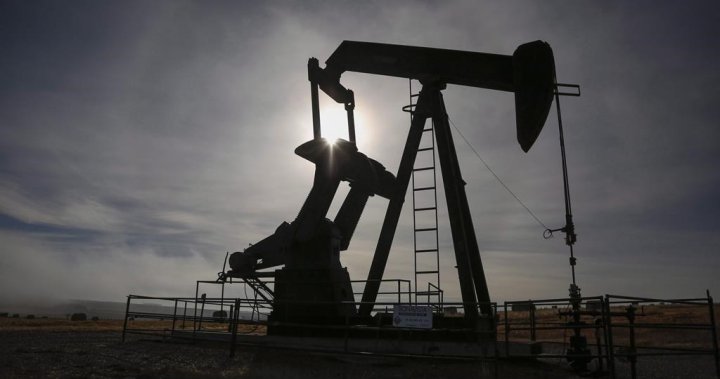
Canada’s 2030 emissions targets rely heavily on oil and gas sector. But what’s achievable?
Global News
If the Liberal government is to meet its climate target of reducing overall emissions 40-45 per cent below 2005 levels by 2030, the oil and gas industry must make drastic cuts.
Canada’s first emissions reduction roadmap relies heavily on the oil and gas sector to help Ottawa reach its 2030 climate goal, but there is a still a big gap between what industry and government say are achievable cuts.
Oil and gas is Canada’s highest-polluting sector, accounting for 26 per cent of total emissions. If Prime Minister Justin Trudeau’s Liberal government is to meet its climate target of reducing overall emissions 40-45 per cent below 2005 levels by 2030, the oil and gas industry will need to make drastic cuts.
So far Canada has missed every emissions reduction goal it has ever set and oil and gas pollution has risen 19 per cent between 2005 and 2019. Canada’s new Emissions Reduction Plan, announced on Tuesday, aims to cut oil and gas emissions by 42 per cent from current levels by 2030.
“Ambition is one thing, action is what’s required,” Suncor Energy Chief Executive Mark Little told a sustainability conference in Vancouver on Tuesday, adding industry needed to work with government to align climate targets.
The Oil Sands Pathway Alliance, a group of six Canadian oil and gas companies including Suncor, is targeting only a 32% cut by 2030. Their alliance, which accounts for 90% of northern Alberta’s oil sands production, is aiming for net-zero emissions by 2050.
“The Pathways Alliance has been clear that the interim goals set for our industry must be flexible, realistic and achievable,” Kendall Dilling, interim director of the group, said in a statement.
The Liberal government, which has had a strained relationship with the oil and gas industry since coming to power in 2015, is also developing an oil sands emissions cap as promised in the last election.
Trudeau said oil and gas leaders themselves recognised the need to get to net-zero by 2050.













